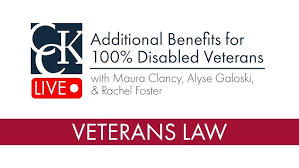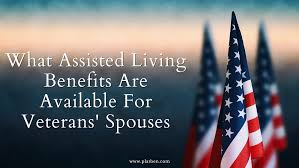Understanding VA Spouse Medical Benefits
For spouses of veterans, accessing medical benefits through the Department of Veterans Affairs (VA) can be a crucial resource for maintaining health and well-being. These benefits are designed to provide support for spouses of veterans who may require medical care.
Spouses of veterans may be eligible for VA health care benefits if they meet certain criteria. These benefits can include coverage for medical services, prescriptions, mental health care, and more. Additionally, spouses may also have access to caregiver support programs to assist with the care of their veteran spouse.
It is important for spouses to understand the eligibility requirements and application process for VA spouse medical benefits. By contacting the nearest VA office or visiting the official VA website, spouses can learn more about the specific benefits available to them and how to apply.
VA spouse medical benefits are a valuable resource that can provide peace of mind and support for spouses of veterans. By taking advantage of these benefits, spouses can ensure they receive the care and assistance they need to maintain their health and well-being.
Understanding VA Spouse Medical Benefits: A Guide to Eligibility and Coverage for Veterans’ Partners
- What are the benefits of a spouse of a Veteran with 100% disability?
- What benefits does a wife of a Veteran receive?
- Does VA healthcare cover my spouse?
- Can I add my wife to my VA medical?
- Are wives of veterans eligible for VA benefits?
- Can my wife take my VA benefits?
What are the benefits of a spouse of a Veteran with 100% disability?
Spouses of Veterans with a 100% disability rating may be eligible for a range of benefits through the Department of Veterans Affairs (VA). These benefits can include access to comprehensive health care coverage, including medical services, prescriptions, and mental health care. Additionally, spouses of Veterans with 100% disability may also qualify for caregiver support programs to assist them in caring for their disabled Veteran spouse. It is important for spouses to explore the specific benefits available to them and to understand the application process to ensure they receive the necessary support and resources.
What benefits does a wife of a Veteran receive?
The wife of a Veteran may be eligible for a range of benefits through the Department of Veterans Affairs (VA). These benefits can include access to VA health care services, including medical treatment, mental health care, and prescription medications. Additionally, spouses may also qualify for caregiver support programs to assist in caring for their Veteran spouse. It is important for wives of Veterans to explore the specific benefits available to them based on their eligibility criteria and to understand how these benefits can support their health and well-being.
Does VA healthcare cover my spouse?
One frequently asked question regarding VA spouse medical benefits is, “Does VA healthcare cover my spouse?” The answer is that VA healthcare benefits do extend to eligible spouses of veterans in certain circumstances. Spouses may be eligible for VA health care benefits if they meet specific criteria, such as being the spouse of a veteran with a service-connected disability or being the caregiver of a veteran with certain medical needs. It is important for spouses to inquire about their eligibility and explore the available options to ensure they receive the necessary care and support through the VA healthcare system.
Can I add my wife to my VA medical?
One frequently asked question regarding VA spouse medical benefits is, “Can I add my wife to my VA medical?” Veterans often inquire about the possibility of including their spouses in their VA medical benefits. The answer to this question is generally yes, as the VA does offer health care benefits to eligible spouses of veterans. By understanding the specific eligibility criteria and application process, veterans can take the necessary steps to ensure that their wives have access to the medical care and support they need through the VA system.
Are wives of veterans eligible for VA benefits?
Many wives of veterans wonder if they are eligible for VA benefits. The answer is yes, wives of veterans may be eligible for VA benefits, including medical care. Eligibility criteria may vary based on factors such as the veteran’s service-connected disability status, military service history, and other considerations. It is recommended that wives of veterans explore the specific eligibility requirements and application process for VA benefits to determine their eligibility and access the support they may be entitled to receive.
Can my wife take my VA benefits?
The question of whether a spouse can take a veteran’s VA benefits is a common one among veterans and their families. In general, VA benefits are intended to support the veteran themselves, but there are certain circumstances where a spouse may be eligible for benefits as well. Spouses of veterans may be eligible for specific VA benefits, such as health care coverage or caregiver support programs, but they do not directly receive the veteran’s benefits. It is important for spouses to understand the eligibility criteria and available resources to determine what benefits may be accessible to them.



